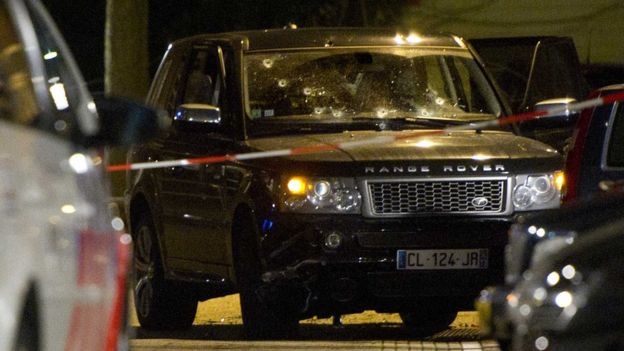Is the Netherlands becoming a narco-state?
"We definitely have the characteristics of a narco-state," confides Jan Struijs, chairman of the biggest Dutch police union.
"Sure
we're not Mexico. We don't have 14,400 murders. But if you look at the
infrastructure, the big money earned by organised crime, the parallel
economy. Yes, we have a narco-state."His words echo in a society that has been convulsed by a murder that went far beyond the bubble of the criminal underworld.
The deadly shooting of Derk Wiersum destroyed a common misconception here: that drug cartels only kill their own. A 44-year-old father of two, he was shot dead in front of his wife outside their home in Amsterdam in September.
'This is meant to frighten us'
Wiersum was the lawyer for a crown prosecution witness, Nabil B, who had turned supergrass in a case against two of the Netherlands' most wanted suspects.The shooting in broad daylight in quiet suburbia was seen as an attack on civil society, democracy and the rule of law.
"This is meant to frighten us," warned public prosecutor Fred Westerbeke. "We must continue to use key witnesses otherwise we will get no further."
Suddenly, the fears of a drug users' paradise turning into a haven for drug crime and an economy undermined by it had burst into the open
"A few incidents over the last few years were like a sign on the wall," explains Wouter Loumans whose bestseller, Mocro Mafia, is a story charting the rise of a new generation of criminals in Amsterdam.
"The signs were there that it could flow over from the underworld to the upper world, and now that has happened."
Loumans lists a series of incidents as evidence of the escalating brutality:
- Two young boys killed in Kalashnikov shootout with bullets ricocheting off walls
- A mother murdered in front of her children
- A severed head outside a coffee shop
- The murder of a crown witness's brother, Reduan B
- The murder of lawyer Derk Wiersum
-
What is the 'Mocro Mafia'?
"It's street slang. Young Moroccans call each other 'Mocro'," says Loumans, who wrote the book with Marijn Schrijver.
"We came up with Mocro Mafia to encapsulate what the book was about. Now I see they're using it in police reports. But it's not only Moroccans. It's about young boys growing up in areas of Amsterdam where tourists never go.
"It's not canals, the Rijksmuseum, Van Gogh. It's the housing estates. They don't have the same opportunities. They are aspirational, they are looking for a career in the underworld."
How big is the Dutch drug problem?
The Netherlands has in a sense created the perfect environment for the drugs trade to flourish.
With its extensive transport network, its lenient drug laws and penalties, and its proximity to a number of lucrative markets, it is an obvious hub for the global narcotics flow.
Where the Netherlands fits on the drugs map
South American drug lords started by shipping to West Africa. The drugs then went north over old smuggling lines from Morocco, and young Moroccans whose parents had moved to the Netherlands still had family connections and migration routes to tap into.
https://www.bbc.com/news/world-europe-50821542





Post a Comment